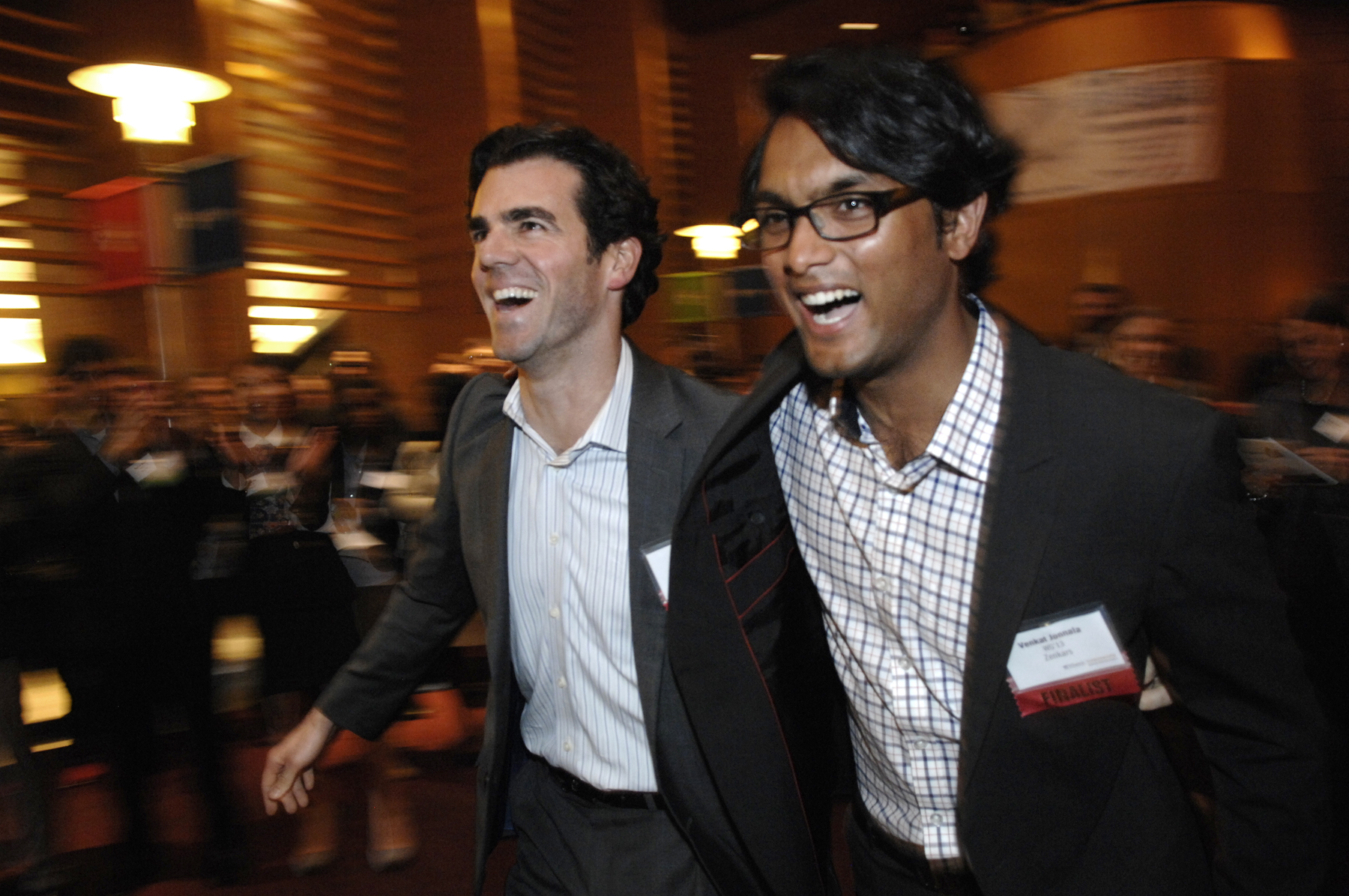DreamIt Ventures has spent the last five years developing one of the country’s best-respected early-stage high tech startup acceleration programs. It set out with a goal of helping startups get off the ground. Now it’s set its sights on another problem: how to keep its startups in the region.
Since its launch in 2008, nearly one-third of the 66 companies that participated in DreamIt Ventures’ five Philadelphia cycles stayed in the city, according to DreamIt Ventures data and an analysis by Technical.ly Philly. Of those 66 companies, nearly two-thirds are still active.
A clarification on the data: [Updated]
- 66 companies graduated the first five DreamIt classes in Philadelphia (2008-2012).
- Of those 66, 41 left the region (29 are still operating or “active,” 8 have closed and 4 were acquired). That’s 62 percent.
- 25 remained in Philadelphia (10 active, 14 inactive, 1 acquisition, UXFlip to Artisan)
Find a more detailed breakdown in graph form and see the hard data here. (And read our disclaimer at the bottom of the story.)

Startups come from all over the country and even outside of DreamIt to join the program, which takes a cut of equity in exchange for a short-term stay, a network of mentorship and investment and limited capital of less than $15,000.
Since its launch, DreamIt Ventures, backed in part by state money from Benjamin Franklin Technology Partners, has focused on developing the local technology community, said cofounder David Bookspan.
“When we started, we wanted to give back to the community in Philadelphia,” said Bookspan, who sold his Wayne-based online court records company MarketSpan in 2000 for a reported $35 million to a company later acquired by LexisNexis.
Today, Bookspan said, the goal still stands, in Philadelphia and in DreamIt’s other host cities, like New York City, Austin, Tel Aviv and now Baltimore. It’s also important to note that, though civic pride runs deeply here, a startup accelerator traditionally has a commitment to making better businesses, not making them stay somewhere. DreamIt founders sought out to make a world-class tech startup program and that goal has largely been met.
Still, the struggle to keep startups here continues. At DreamIt’s December 2012 demo day at World Cafe Live, Bookspan emphasized the importance of early stage capital in retaining DreamIt’s startups. Look at the numbers, he said: out of Philly’s 2011 DreamIt class, nine startups out of 12 initially stayed, but two of the nine companies eventually left because they received investment outside of the region.
Of the 14 startups from the last Dreamit class, three were from Philadelphia originally and at least two are still here, though Wharton-based Zenkars, an online used car retailer that won the Wharton Business Plan Competition is no certainty. It’ll follow its investors, cofounders told Technical.ly Philly.
That can be a challenge. Though there are clear changes afoot, Philadelphia has traditionally underperformed in risk-heavy investment, particularly in the city.
DreamIt is keenly aware of the issue, Bookspan said, and is working on a number of efforts, which he said he could not announce yet, to keep its startups in the city.
“We demonstrated that [these startups] will come to Philadelphia to launch their companies,” he said. “What we need to do now is to make Philadelphia a place they want to stay.”
As we have also reported, DreamIt Health, with its regional distinction, is having better early success in retention.
Disclaimer: Our study was by no means scientific due to the fluid nature of startups. Also, of course, where an early stage company is “from” is no easy decision. For our math, if any of the founding team was living in Philadelphia before DreamIt — either because of family or college or a previous job — that company was considered a Philadelphia company.
We looked at two main aspects of the DreamIt Ventures startups: their headquarters and their status (active, as in still doing business, or inactive, with team that has moved on). But some startups, like ElectNext, whose team is split between California, New York and Philadelphia, say it doesn’t have a headquarters (for this story, we marked ElectNext as a startup that stayed in Philadelphia since it has two employees here and is building a local platform in the city).
With other startups, it was difficult to tell whether or not they were active. Take, for example, Tembo Studio. While Tembo Studio is still active, its founder Alfie Hanssen has a day job and said Tembo Studio currently a side project of his (we marked Tembo Studio as inactive for this story).
For some startups that had been inactive for more than year, it was very difficult to determine if they had left Philadelphia before they became inactive. We found six startups that fell into this category, and we removed them from our overall count of startups that stayed or left the city, rather than marking them as startups that stayed in Philadelphia and then became inactive. We felt that would create data to suggest that if startups stay in Philadelphia, they’re more likely to become inactive.







